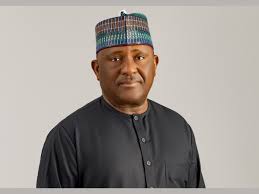Prominent Nigerian industrialist and philanthropist, Abdul Samad Rabiu, has reiterated the urgent need for African nations to redirect their energies inward, if the continent is to experience genuine, lasting development. Speaking on the state of Africa’s economic trajectory, Rabiu emphasized that the continent can only achieve real progress by prioritising local solutions, adding value to its abundant resources, and creating sustainable systems tailored to its unique challenges.
Rabiu, who is the founder and Chairman of BUA Group—one of Africa’s leading conglomerates in cement, food processing, and infrastructure—stressed that “the only way to develop Africa is to concentrate on Africa to do more.” His remarks echo a growing sentiment among African thought leaders and economists who argue that dependence on foreign aid, imported solutions, and raw material exports without value addition continues to hinder the continent’s economic growth.
Despite holding approximately 60 percent of the world’s uncultivated arable land and boasting a rapidly growing population of over 1.4 billion people, Africa still grapples with critical issues such as food insecurity and underutilization of its vast agricultural potential. According to data from the African Development Bank, the continent spends over $35 billion annually on food imports, a figure projected to rise to $110 billion by 2025 if current trends continue. This alarming dependence on foreign markets for essential commodities is widely seen as unsustainable.
Rabiu maintains that Africa’s agricultural and natural resources must no longer be exported in raw form. Instead, governments and private sector players must invest in processing and manufacturing to retain more economic value within the continent. For example, Nigeria, which is a leading producer of crops such as cassava, yams, cocoa, and maize, still imports processed foods that could easily be produced locally with the right infrastructure and policy support.
He also highlighted the need for African countries to build resilient local industries, not just to create employment, but to foster innovation, improve trade within the continent, and reduce exposure to global economic shocks. With the African Continental Free Trade Area (AfCFTA) now in motion, Rabiu believes that intra-African trade can become a powerful catalyst for development—provided that nations commit to producing what they consume and consuming what they produce.
Moreover, he stressed the importance of investment in human capital, particularly in education and technical skills that align with Africa’s industrial ambitions. Without a skilled workforce, Rabiu warned, Africa risks remaining a continent of untapped potential. His stance aligns with the wider Vision 2063 agenda of the African Union, which places emphasis on inclusive growth, sustainable development, and self-reliance.
Rabiu’s call is not without precedent. Several African nations, including Rwanda, Ethiopia, and Ghana, have in recent years adopted more inward-looking economic policies aimed at reducing import dependency and promoting local content. However, challenges such as inadequate infrastructure, limited access to finance, and policy inconsistency continue to slow down progress across much of the continent.
Nonetheless, Rabiu’s message is clear and timely: Africa’s path to prosperity lies within its borders. By focusing on local capacity building, value addition, and sustainable practices, the continent can break free from decades of economic stagnation and realise its full potential. For a region blessed with natural wealth and a youthful, energetic population, the future remains bright—if only African leaders, businesses, and citizens can rise to the occasion and believe in Africa for Africa.

